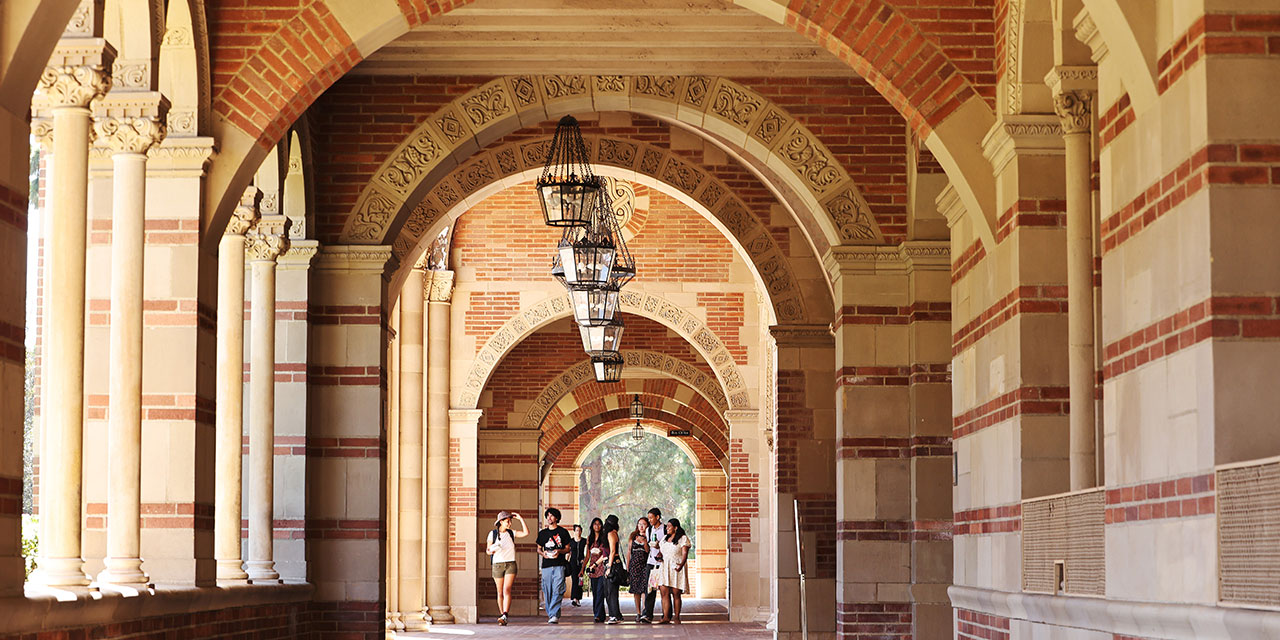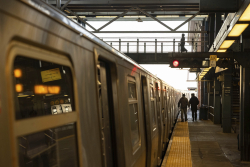
This past February, Democrats made a great show of rallying to the defense of USAID, which stood on the brink of dismantlement by the Trump administration. Elected officials gave speeches, demonstrators protested by lying down on the floor of the agency to symbolize the alleged victims of budget cuts, and staffers facing dismissal blocked the entrance to USAID’s headquarters. This outcry was to be expected—historically, Democrats have been more enthusiastic about foreign aid, and USAID was overwhelmingly staffed by liberals.
So why hasn’t the progressive response to Trump’s battle with the universities been just as loud? Democrats are perhaps even more closely identified with institutions of higher education than with USAID. University students and employees, moreover, are closely aligned with the Democratic Party. The best estimates are that Democrats outnumber Republicans between five and ten to one in the faculty ranks (with a greater imbalance at our most famous universities), likely with an even stronger skew among administrators and a more modest but still pronounced lean toward Democrats among students.
Finally, a reason to check your email.
Sign up for our free newsletter today.
Thus, the mystery: Why not more public displays of anger and protest from Democratic leaders and constituencies on behalf of universities? Op-ed pages feature frequent fulminations over Trump’s “war” on education, but we’ve seen no equivalent to the Women’s March or the “No Kings” demonstrations on behalf of academia. In the midst of Trump’s attempted transformation of this deep-blue sector, why have Democrats shown relatively little appetite to resist? Why do universities have so few boisterous, determined friends in the public square?
It’s hard to pinpoint the reason through polling and surveys, so we’re left with speculation. Still, a few general themes stand out.
First, more than just Republicans and independents have soured on universities. Even Democrats’ opinions of universities had begun to deteriorate over the first Trump administration, a trend that continued under Biden. This is precisely the opposite of the bunker mentality you would expect from a party out of power that feels its strongholds are under siege. Many Democrats acknowledge deep problems of cost, job-market relevance, and politicization in higher education, even if they’re less upset about it than Republicans. In other words, universities that threw in with the resistance during Trump I only made enemies; they did not cement any new lasting friendships as a result.
Developments in political culture since the peak of the “Great Awokening” have not left Democratic Party moderates or progressives in a good position to give a full-throated defense of the university. Both sides have their reasons for not going to the mat for higher ed right now.
Many moderates are quietly embarrassed by the universities. They don’t believe their party can regain public trust so long as the public identifies the Left with academia. This cohort, represented by pundits like Noah Smith and Matthew Yglesias, is actively running away from wokeness—and no institution is more closely associated with wokeness than the university. (Yglesias, for instance, has expressed regret over the role he played in mainstreaming “social science [that] is shot through with dramatically more ideological bias than I realized,” and aments that academic research has become corrupted by an unquestioning incorporation of progressive values.) There is no way for them to go to bat for universities without someone dredging up academia’s recent track record.
Moreover, “abundance” advocates, the surging faction seeking to wrest control of the center-left, see “the groups”—that is, the activist, “expert,” professional-class organizations so prominent within American liberalism—and their control over the liberal coalition’s policymaking levers as a primary obstacle. And “the groups” are shaped by and interwoven with modern academia. One self-identified moderate abundance proponent told me that “higher education is, if not the enemy of the Democratic Party, at least a problem,” adding that the “culture of higher education” is “an impediment to the success of abundance.” Much as those on the center-left might deplore various aspects of Trump’s approach to higher education and research funding, they are held back from making more full-throated defenses of higher education because they see it as an obstacle to moving the party in the direction they want.
Finally, and perhaps most importantly, October 7 disrupted a liberal-left alliance that had been fairly ironclad for at least a decade. Even if liberals sometimes quarreled with the pace or extent of change demanded by colleagues to their left, they ultimately saw them as comrades-in-arms, on the “right side” of history. After Hamas’s murderous rampages, however, this trust has vanished, since the center-Left remains much more pro-Israel and philosemitic than the far-Left. It is not uncommon now to find the center-Left voices who have traditionally championed higher education now worried that it is incubating anti-Semitism. They may loathe Trump, but that isn’t always enough to get them to defend institutions they believe are abetting hatred of Jews.
But if the center-Left is unable to take constructive action on behalf of the university, neither are progressives. No group in America knows better how to bite the hand that feeds it. Though the far-Left is utterly dependent on the jobs, subsidies, and bully pulpit that higher education provides, its adherents have adopted a constantly adversarial stance toward their own benefactors. American left-wing student radicals will protest on behalf of any cause but that of their own universities. Progressive faculty frequently denounce their own institutions and disciplinary fields—a phenomenon that scholar Len Gutkin calls “ritual anathematization.”
For many years, university administrators looked kindly on these denunciations. Those who denounced the university in the most vehement terms were often elevated and lauded, while those who defended the university despite its many flaws were maligned.
These denunciations not only diminished higher education in the eyes of the public; they also reinforced American progressives’ habit of seeing their own institutional homes as enemies of other causes they believe in. Academic progressives tend to view the university as an emblem and enforcer of American capitalism, imperialism, racism, and inequality. As my colleague David Bell has put it, “If you see yourself less as part of an institution than as part of the resistance to it, you are probably not going to take many steps to defend it, even against Donald Trump.” If progressives who depend on universities for their livelihood nurse this much hostility to the institutions, imagine how progressives who draw their paychecks from elsewhere feel.
In its critical moment, then, the university finds itself with few vocal allies in the Democratic Party—itself plummeting in popularity. In a cruel irony, the university’s reward for having involved itself so closely with liberal and progressive priorities has been to receive a far more tepid defense than most observers could have imagined eight years ago when Trump first came to office.
Photo by Mario Tama/Getty Images
City Journal is a publication of the Manhattan Institute for Policy Research (MI), a leading free-market think tank. Are you interested in supporting the magazine? As a 501(c)(3) nonprofit, donations in support of MI and City Journal are fully tax-deductible as provided by law (EIN #13-2912529).
Source link

















